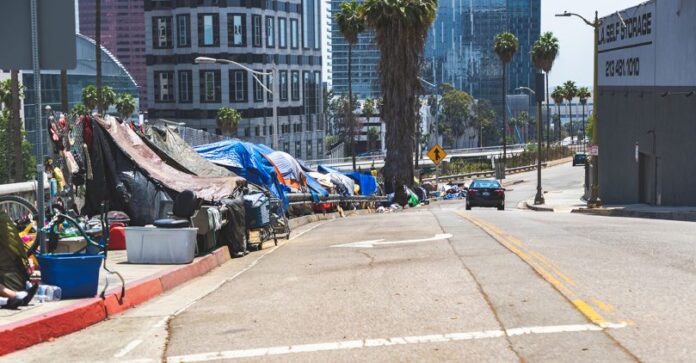
By Stacy M. Brown, NNPA Newswire Senior National Correspondent
The U.S. Department of Housing and Urban Development (HUD) has released its 2023 Annual Homeless Assessment Report, revealing a distressing 12% surge in homelessness since 2022. The report, encompassing the Housing Inventory Count, paints a bleak picture of the current state of homelessness, with a staggering 653,104 individuals experiencing homelessness on a single night in January 2023—the highest since the national reporting on the Point-in-Time count began in 2007.
Of significant concern is the disproportionate impact on Black communities, constituting nearly 4 in 10 of those experiencing homelessness. Despite comprising just 13% of the total U.S. population, individuals identifying as Black accounted for 37% of the homeless population.
Equally alarming is the plight of the Latino community, as almost one-third of people experiencing homelessness identified as Hispanic or Latino. The number of homeless individuals in this demographic surged by 28% between 2022 and 2023, contributing to 55% of the total increase in homelessness during this period.
“Our society is selective on who is worthy enough to receive sympathy and assistance: Black or white, sober, or addicted, mother or father, married or single. We choose according to personal politics who is worthy of stability, who doesn’t deserve support, and when it is acceptable for someone to be without shelter,” author, poet, and blogger Archuleta Chisolm wrote for BlackGirlNerds.com.
While the latest report indicates progress in addressing homelessness, with HUD projecting to serve 330,000 people through increased grants to homeless service organizations, challenges persist. The expiration of resources from President Biden’s American Rescue Plan (ARP), the largest single-year investment in preventing and ending homelessness in U.S. history, has played a role in the current rise.
The 2023 Point-in-Time Count data underscored the urgency of the situation, revealing increases across various demographics:
- Sheltered homelessness rose by 13.7%
- Unsheltered homelessness rose by 9.7%
- Homelessness among individuals rose by 10.8%
- Homelessness among people in families with children rose by 15.5%
- Homelessness among unaccompanied youth rose by 15.3%
- Homelessness among veterans rose by 7.4%
- Chronic homelessness among individuals rose by 12%
HUD Secretary Marcia Fudge acknowledged the gravity of the issue. “Homelessness is solvable and should not exist in the United States,” Fudge declared. “From day one, this administration has put forth a comprehensive plan to tackle homelessness, and we’ve acted aggressively and in conjunction with our federal, state, and local partners to address this challenge. We’ve made positive strides, but there is still more work to be done. This data underscores the urgent need for support for proven solutions and strategies that help people quickly exit homelessness and that prevent homelessness in the first place.”
The report further attributes the overall increase to a rise in the number of people experiencing homelessness for the first time, with a 25% increase between fiscal years 2021 and 2022. Data from the report emphasized the pressing need for sustained, collaborative efforts to combat homelessness and support vulnerable populations nationwide.
“HUD has substantially invested in addressing the housing needs of those facing homelessness, particularly the most vulnerable populations,” officials wrote in a release.

